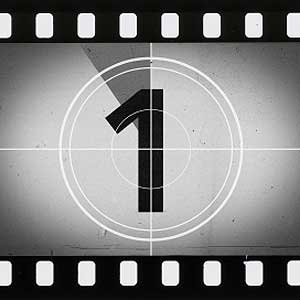If Jud Suss — Rise and Fall, recently shown at the Berlin Film Festival, takes the story of the most notorious anti-Semitic film ever made and paints it in melodramatic terms, then Harlan: In the Shadow of Jew Suss, a documentary currently opening around the country, is its historical antidote.
Directed by Felix Moeller, the film is the mesmerizing story of Veit Harlan, the most famous director of the Nazi era, whose rabidly anti-Jewish 1940 film Jew Suss was not only a huge European hit, but was required viewing for all S.S. soldiers and has left a legacy that his children and grandchildren are still dealing with.
Filled with the usual archival clips and talking heads, Moeller’s picture shows how Harlan, whose talent was for kitschy romances and overblown spectacle, was handpicked by Joseph Goebbels to direct a film about a cunning and ruthless 18th-century Jewish financier who takes over a German province and lusts after pure Aryan maidens.
Seen today, Jew Suss looks bizarre, wildly over-acted and ludicrous — it could almost be called anti-Semitic camp — so it’s hard to understand why it was such a box-office success at the time. But of course, the world of 1940 was another universe entirely.

An occasional look at movies that matter.
Besides, Harlan: In the Shadow of Jew Suss, does not intend to act as a critical review of Harlan’s oeuvre (the clips from his films say all you need to know about Harlan’s talent, or lack of same), but means to explore why Harlan made the film, and how it has affected his family. Was Harlan an opportunist, a dedicated Nazi, or forced to do it? He always claimed the latter, but his protests come across as utterly unconvincing, especially when the documentary points out that even though the director lived until 1964, he never apologized for the film.
A sense of remorse seems to have been left to his children, most of whom have tried, in one way or another, to distance themselves from Harlan’s legacy. One became a Nazi hunter. Another, convinced by the rise of Nazism that bad things happen when people do not speak out early enough, has become an environmental activist. Two of Harlan’s daughters married Jews (one converted to Judaism), and another changed her last name so she could pursue an acting career. Their responses to Jew Suss — except for one son who refuses to discuss “private” matters — range from outrage to embarrassment to a sort of bemused distress, as they wonder why such a “cheesy” film could become so notorious.
It is up to one of Harlan’s granddaughters, a Jew whose paternal grandparents died in the Holocaust, to make the ultimate statement about Jew Suss — that one of her grandfathers made a film justifying the murder of the other. It is a chilling comment in a brilliant, and thoughtful, documentary.



